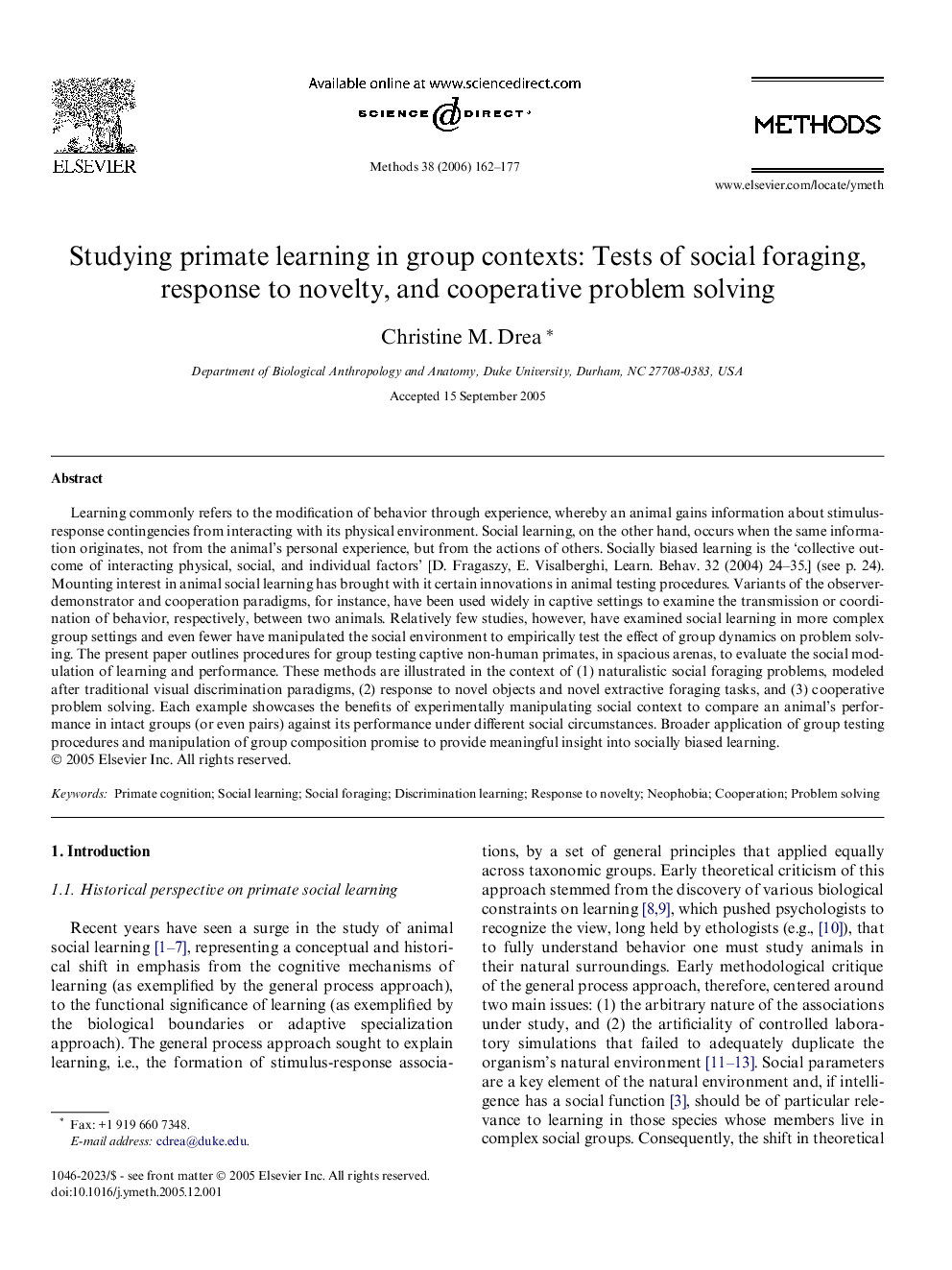| کد مقاله | کد نشریه | سال انتشار | مقاله انگلیسی | نسخه تمام متن |
|---|---|---|---|---|
| 1994555 | 1064799 | 2006 | 16 صفحه PDF | دانلود رایگان |

Learning commonly refers to the modification of behavior through experience, whereby an animal gains information about stimulus-response contingencies from interacting with its physical environment. Social learning, on the other hand, occurs when the same information originates, not from the animal’s personal experience, but from the actions of others. Socially biased learning is the ‘collective outcome of interacting physical, social, and individual factors’ [D. Fragaszy, E. Visalberghi, Learn. Behav. 32 (2004) 24–35.] (see p. 24). Mounting interest in animal social learning has brought with it certain innovations in animal testing procedures. Variants of the observer-demonstrator and cooperation paradigms, for instance, have been used widely in captive settings to examine the transmission or coordination of behavior, respectively, between two animals. Relatively few studies, however, have examined social learning in more complex group settings and even fewer have manipulated the social environment to empirically test the effect of group dynamics on problem solving. The present paper outlines procedures for group testing captive non-human primates, in spacious arenas, to evaluate the social modulation of learning and performance. These methods are illustrated in the context of (1) naturalistic social foraging problems, modeled after traditional visual discrimination paradigms, (2) response to novel objects and novel extractive foraging tasks, and (3) cooperative problem solving. Each example showcases the benefits of experimentally manipulating social context to compare an animal’s performance in intact groups (or even pairs) against its performance under different social circumstances. Broader application of group testing procedures and manipulation of group composition promise to provide meaningful insight into socially biased learning.
Journal: Methods - Volume 38, Issue 3, March 2006, Pages 162–177